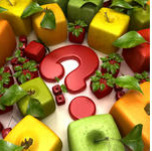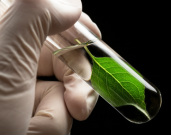|
|
Understanding GMO and the biotech industryGenetically Modified Organism (GMO) is a term used to describe any organism (e.g., bacteria, plants, animals) whose genetic material has been intentionally altered from its original state by means of various genetic-engineering methods. One use of GMO’s is to create “genetically modified foods,” whether by direct manipulation of produce or alterations to animals used as sources of meat and dairy products. Among justifications for use of GMO’s are to: decrease allergens while increasing the shelf-life and perceived quality of food products, and/or to address a supply shortage and world hunger. Although purported to be perfectly safe by the FDA and certain corporations benefiting from their sale, there is an overwhelming amount of mounting evidence revealing GMO foods create a multitude of adverse effects to the human body, the extent of which are still unknown. Ongoing studies show increased occurrences of organ damage and cancer in rats, though the results of these studies are quickly trivialized and disregarded by our protective agencies.
|
|
There are ongoing debates as to how safe GMO’s really are. One side would have consumers believe that genetically-altered food products are healthy, safe, and even beneficial. Others cautiously oppose this view due to the preponderance of scientific evidence to the contrary. Despite everything, GMO’s presently inundate the food supply with no mandatory labeling, leaving consumers no choice but to unknowingly ingest them. Somehow, the fundamental right of free choice has been taken away without question or recourse.
A key mounting concern is the roll that GMO corporate giant, Monsanto, is playing. Monsanto is a relatively unknown corporation, yet a behemoth on the world stage in DNA tampering issues. This corporation holds countless patents on a multitude of crop seedlings which means that any crop found with their seeds, are legally their property. Currently this company is limited to the U.S. patent laws but is aggressively pursuing global patents. Alarmingly, there are fewer and fewer remaining natural crops in existence on the planet. Pollen from Monsanto plants can travel to distant regions and infest these crops. Owning certain agricultural global patents, any crop in the world detected having Monsanto genetic elements (due to pollination), are technically owned by them. It is as absurd as patenting the flu and then charging everyone who contracts it. Controlling the world’s oil supply pales in comparison to a single corporation in control of the world’s food supply.
|
|
As responsible citizens of this world, we cannot delay in the examination and action on these issues. The 2013 Radio Series, "Mad Science: The Genetic Crossroad" aims to raise awareness to the issues of GMO tampering of our food supply and to pose the hard questions: Why are we not informed of the true dangers? Despite the evidence, why does the FDA approve of the widespread usage of GMO in our food supply? And finally, who has taken away our fundamental right to choose healthy food for our families, and why?
|




